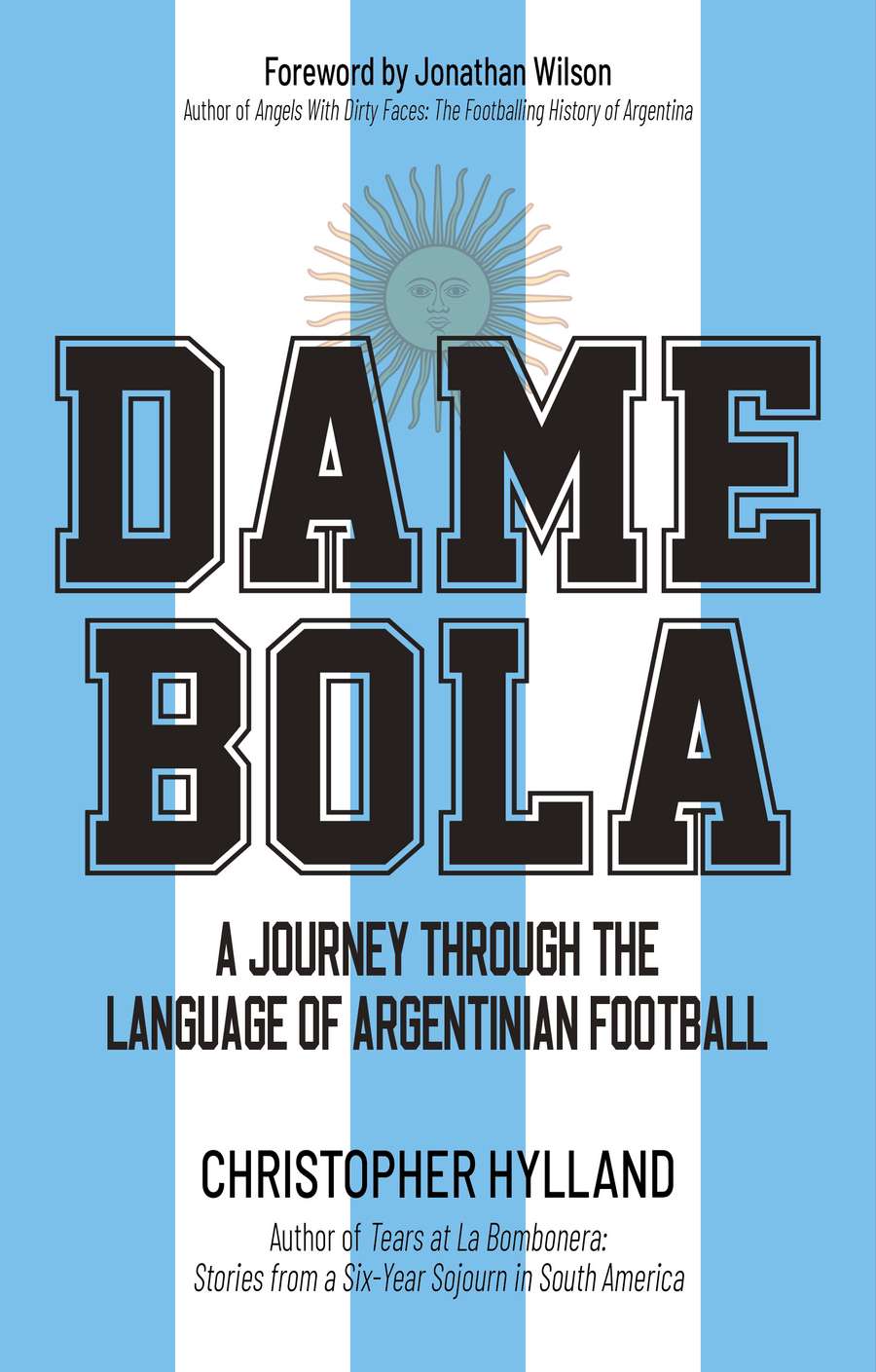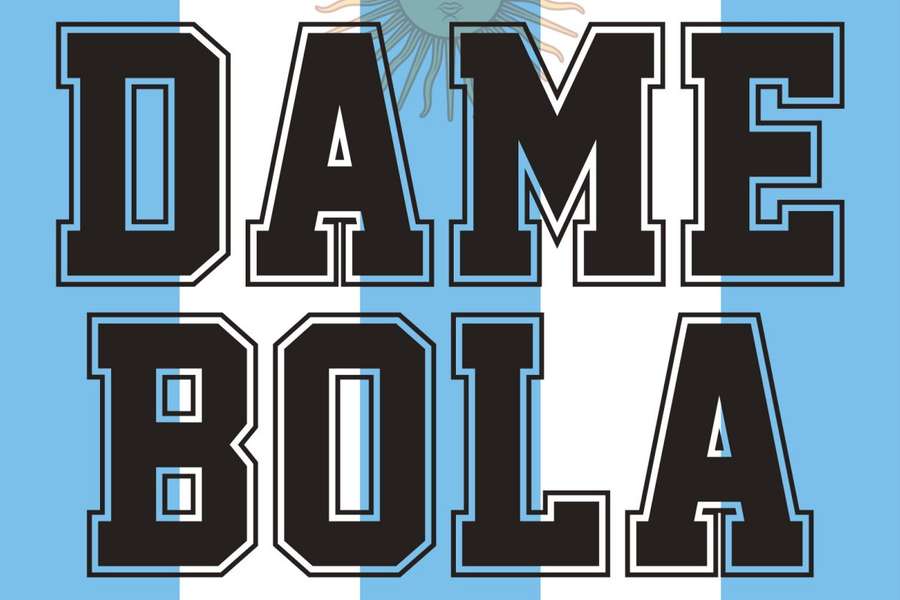Having two such magicians grace the game, it’s little wonder that the land of silver is arguably the most football crazy country in the world. Which again makes it only fitting that the Argentinian language has an extraordinary vocabulary surrounding football. Just ask Christopher Hylland.
Having written “Tears at La Bombonera” in 2021 he set about collecting words, phrases and expressions the Argentinians use when talking about their favourite pastime. All of which he’s now published in a brand-new book called “Dame Bola”. An expression which means “pass me the ball” or simply “give me your attention”. Just why the language is so rich on expressions stemming from football you have to go back to around the beginning of the 20th century.
“In English, we have a lot of sports related metaphors from boxing and horse racing for instance which are sports that are much older than football. Argentina simply don't have many sports that are older than football because it arrived at the same time as mass immigration began in Argentina.
“So, it's a historical coincidence that their language is littered with these football metaphors. Argentinians are very romantic and poetic about the way they label some incidents and football was the most accessible sport to the many immigrants who came over,” says Christopher Hylland who spent six years in Argentina, seeing up close how important the sport is to Argentina.
“Football is so dominant there and if you delve a little bit deeper into the sociology and the anthropology, Argentina was promised a really fantastic future. Their economy was on the way up and they were promised a great future economically. But it never happened. Instead, they've had six dictatorships in 100 years, they’ve had economic crises and inflation. The one thing that they can be proud of and the one thing that they can claim to be at the top of the world is football. So, for them to win the World Cup, like in 2022, is much, much more important than it is to Norwegians and the brits, for instance.”
What are you looking at, idiot!?
Speaking of that World Cup; an expression uttered by Lionel Messi during their title-run instantly made its way into the football-lingo in Argentina. After the feisty drama against the Netherlands in the quarterfinal, Messi yelled “qué miras, bobo?” at Wout Weghorst while on camera. For the captain to yell “what are you looking at, idiot” like that, almost elevated him to another level in the eyes of the Argentinians. This is, after all, a country who loves a rogue and has several words or expressions for it. Like “pidarciá” which is “an underhanded craftiness linked to deceit” as Christopher Hylland describes in his book. Another one, “colgarse del travesano”, means to “win by any means”.
“Argentinians are very proud of being anti-authority. The poorest people in society don't feel the rules apply to them and not because they want to cheat but because they don't feel that society is giving them anything. There's also the phrase “viveza criolla” meaning to cheat and get away with it. It derives from a belief that people who follow the rules are idiots. Personally, I never got used to that aspect of the game during my six years there,” Hylland admits.
An example of these expressions coming to use led to the infamous “La Vergüenza de La Plata”, “The Disgrace of La Plata”, as highlighted in the Hylland’s book. Estudiantes faced AC Milan in the Intercontinental Cup in 1969 which ended up with three players from Estudiantes receiving jail sentences as even the military dictator Juan Carlos Ongania felt the violence was too excessive! Another example of even Argentinians feeling some Argentinians took the colgarse del travesano perhaps a step too far was the election of a new president for the Argentinian football association, AFA, in 2015. 75 delegates were eligible to vote and both candidates secured 38 votes!
Watch Argentinian football live
Having spent six years travelling to a vast number of stadiums in Argentina, Christopher Hylland recommends not watching Argentinian football on television.
“Then you're limiting yourself to those two hours of the game. What the Argentinian game provides is the before, the during and the after. When you go to a football match, it's a whole day and I'd argue that that's the attraction of going to an Argentinian game.
“The quality is very low as clubs lose their talent very early, like Manchester City picking up Claudio Echeverri from River Plate recently. So, those who play in Argentinian football are the ones that will never make it abroad to a big European league, MLS or Mexico. Or they're the old boys who have come back. But I would argue that it's worth going anyway just for everything around the 90 minutes.”
Hylland recommends the obvious stadia like La Bombonera and El Monumental but also the perhaps less obvious belonging to Huracán.
“It's overlooked by many, but they have a wonderful stadium. Art Deco on the outside, with a fantastic tower up the middle. I would also suggest Racing Club's El Cilindro, and if you’re a fan of Maradona, you have to go see Argentinos Juniors. The stadium is named after him and his former house, which they’ve turned into a museum, is only a couple of blocks away. They also have a wonderful museum in the stadium. You can spend a whole day in that neighborhood.”
While travelling there, you can practice your Argentinian football lingo with “Dame Bola”, so you’re up to speed on what a “Chilean” is, who “Los Cinco Grandes” are, why fans are shouting “tiren papelitos, muchachos” or why they’re rooting for their “caudillo”. Not to mention the hilarious story of La Mufa, who apparently was instrumental in Argentina winning the World Cup final in 1986. If you believe it was all down to D10S, think again!
Christopher Hylland’s “Dame Bola – A Journey Through the Language of Argentinian Football” is out now on Pitch Publishing. You can get your own copy from the website, in various assorted bookshops or right here.

